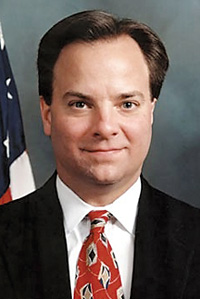WASHINGTON - CMS unveiled a preliminary plan in late August to do away with the CMN for scooters and wheelchairs and replace it with a doctor's prescription as the only document of record for Medicare claims.
The interim final rule authorizes a payment of about $21 to prescribing physicians for preparing and providing the required documentation.While providers would submit only the prescription when filing a claim for a wheelchair or scooter, they would have to keep on file the doctor's records that prove medical necessity.
CMS Administrator Mark McClellan announced the interim final rule for scooters and power wheelchairs during a press conference on Aug. 24.
"This approach of relying on the documentation that a physician or treating practitioner generally uses is the least burdensome and most effective way to achieve that goal," said McClellan.
"The CMN would be an additional form that would include duplicate information from what was already being done in the medical evaluation and the medical record, and we want to minimize that burden to providers," he continued.
The new rule goes into effect Oct. 25, and CMS will accept comments until Nov. 25. In early September, CMS hosted a Special Open Door Forum, at which experts discussed the rule and addressed questions (See related story on page 91).
Although physicians will be paid for documenting medical necessity, McClellan stopped short of saying that physicians would bear any responsibility in a post-pay audit if it's determined that a beneficiary was not, in fact, eligible for a power wheelchair or scooter. But it's clear that physicians do have to pay closer attention to a patient's condition before prescribing a power wheelchair or scooter.
"Certainly, there is a little greater expectation here on the physician - because of the face-to-face requirement - to be providing us with more detailed information," said Kim Brandt, CMS's director of program integrity. "When they document their patient encounters they really need to describe the patient's clinical condition. We want to hear about the patient's strength, we want to hear about disease progression, and changes of health status."
Providers question the ability of physicians to provide the necessary supporting documentation, such as physical examination and diagnostic tests.
Updated coverage standards, coupled with the goal of improving access to scooters and power wheelchairs, spurred CMS to shake up its documentation requirements, McClellan said. Recently, CMS also announced that it would drop a requirement that only specialists in physical medicine, orthopedic surgery, neurology or rheumatology could prescribe the equipment.
McClellan said utilization "could well go up," as a result of these changes.
The prescription submitted by the provider must include:
- The beneficiary's name;
- The date of the exam;
- The diagnoses and conditions that the device is expected to modify;
- A description of the item;
- The length of need;
- And the physician's signature and the date the prescription is written.




Comments